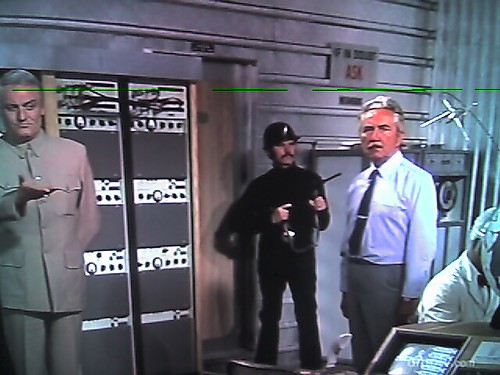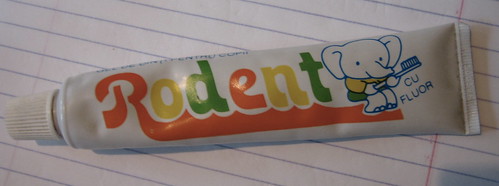
Yesterday was a tough one at work, made especially tougher by the fact that the House of Tooth is flying out on vacation tomorrow, earlier than I feel comfortable contemplating.
But if Mr. Howell is going to write about motor vehicular risk, so will I.
When I got home last night, I watched Race 1 of the WSBK at Silverstone. Nasty conditions: standing water on the track, filthy visor-coating mist flung up from rear tires, cold rain, poor visibility, and very heavy very aggressive traffic. So nasty that the second race was red flagged. Sounds like Chandler's Chicago commute, with the following exceptions:
- Everyone is on two wheels (except for the Alfa 159, which follows only on the warm up lap, and at a discrete distance).
- The cycles have been freshly massaged by well paid mechanics, sparing no expense in picking the fly poop from the pepper in handling, power delivery and suspension according to the desires of the rider. When the track is hot, statuesque women in high heels hold umbrellas over the motorcycles to keep them cool.
- Everyone on the track is wearing leathers, gloves, boots, back protector and a full-face helmet.
- No one is chatting on a cell phone or drinking coffee whilst riding round the track. The only communication is through flags waved by officials and corner workers, and the pit board with a couple of numbers hung out for the rider to read as he speeds past. None of this NASCAR-style chit chat and sippy cups.
Are strictly enforced regulations and technical innovation what makes for great racing? Is it all physics, themodynamics, fluid mechanics, geometry and friction?
No. What makes for great racing is the fact that these machines are piloted by the world's finest chaos generating engines, i.e., motorcycle road racers. Otherwise, why does nutso "Nori" get wear a rainbow wig on the podium, while his stoic Wollongongian team mate does not? What is to prevent a twitchy Frenchman on an equally twitchy Kawasaki from having a fleeting existential moment, resulting in a high velocity green missile smashing into a focused Texan's perfect line round Ascari? Nothing. The black swan rides the track along with the red Ducks.
Like any enterprise, you can comply with the regulations. You can follow the rules. You can become technically innovative. But the enterprise is run by chaos driven humans. All you can do is strap them in leathers and hope they don't lose any more fingers than is absolutely necessary.








